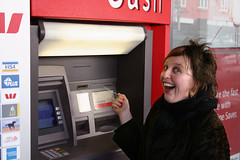When running your own start-up, one of the first things you need to do is open a business bank account. Doing this forms your company’s financial identity and also helps in establishing its credit, among other things. Here are some of the other things you need to know about getting one.
Why it’s necessary
All businesses unequivocally need banking services. There are several reasons why:
Reason #1: Credibility and professionalism
Aside from functional reasons, businesses need a bank account to promote an image of professionalism. Any business that separates its finances from personal transactions shows that it is credible. Using cheques signed under a personal account for your company’s transactions could turn off your clients and ultimately affect your business.
Reason #2: For accurate book-keeping
Another great reason to keep a bank account for your business is that it automatically records all your transactions used with that account, and this helps make your book-keeping accurate. And having accurate financial records makes it much easy for your company during tax season. Besides, good records let you keep track of your company’s financial health and help you make good business decisions.
Reason #3: Good records are required by law
According to the Australian Taxation Office or ATO, the most important reason for keeping good records is that it’s a legal requirement. You need to keep records for five years in a form that the ATO can access and understand.
Reason #4: Show your business isn’t a hobby
Having a bank account also shows the ATO that you’re operating a real business and not a hobby. This is necessary because it will affect your taxes. While any income you get from your “hobby” isn’t taxable, you won’t be entitled to tax deductions for any expenses related to that hobby.
Reason #5: Have an audit trail for the ATO
In case the ATO ever decided to audit you or your company, having a separate business bank account will help you keep things transparent and much easier. Don’t forget to keep your receipts and invoices as backup.
Types of banking services for business
Whatever commerce your company engages in, it would need at least one of these two general business banking services:
Transaction banking
Transactions are about the exchange of services, goods or money, which is exactly what companies do in business. Because of this, transactions—and transaction banking—are integral for all kinds of companies. Here are a few common transaction banking products:
- BPAY, an electronic payment system
- Internet banking
- Lockbox services
- Payroll processing
Merchant services
This refers to services that let businesses accept payments through credit or debit cards. Merchant services usually encompass the following:
- Cheque conversion services
- Loyalty card programs
- E-mail marketing
- Point-of-sale (POS) systems
Here are a couple of things to consider before getting merchant facilities:
- If you have a retail store where patrons use payment cards, you may have to get an EFTPOS terminal, but you also have to consider the volume of card transactions against cash payment.
- If your business takes orders through e-mail/a website, fax or phone, and processes them manually, your company may have to spend more on account fees. However, merchant facilities like EFTPOS would cut down on paperwork and costs, and speed up payment processing.
About the Author:
This guest post was written by Charles. Charles is a content writer for banks.com.au and has written many guides and articles on personal finance management.

